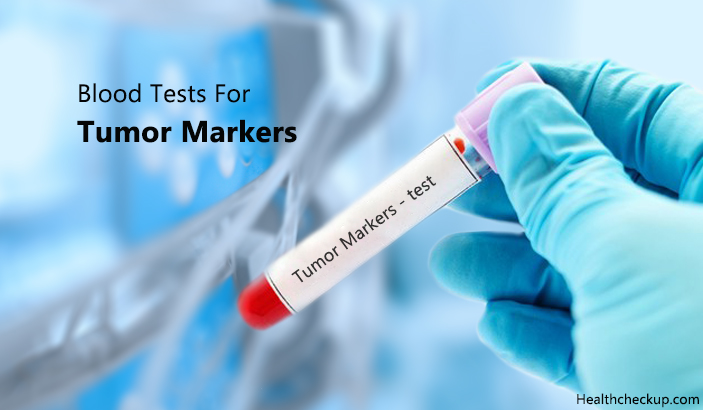Cancer is a term used to describe abnormal cell growth and proliferation in the body. This is a relatively scary word to hear for anybody. The most common thought that comes to a person’s mind on hearing the word “Cancer” is a deadly disease which is potentially fatal.
Well, it is true in most of the cases where a diagnosis of cancer is made considerably late. The reason is that, quite often, cancer of any type or any organ does not show alarming signs and symptoms right from the very beginning. In plenty of cases, cancer is discovered accidentally while having a regular blood check or while investigating for some other cause.
So What Are The Ways by Which we can Diagnose any Kind of Cancer?
- Detailed Medical History
- Physical Examination
- Scans – CT, MRI and PET (to know extent of spread)
- Blood tests including tumor markers
Although cancer may sound spine-chilling, the key to have better chances of survival and to increase one’s life expectancy with cancer is timely diagnosis with the help of scans and blood tests for cancer markers.
What are Cancer Markers?
Cancer is also called as a tumor, meaning an abnormal mass or growth of tissue without inflammation. Therefore, blood tests for cancer markers are also called Tumor Markers.
Advantages of Getting Blood Tests Done for Tumor Markers are:
- There are specific tumor markers for specific types of cancers.
- The counts of tumor markers correspond to the size and extent of cancerous growth.
- Tumor markers have high sensitivity for cancerous growth.
- They help to screen for cancers even before signs and symptoms begin to appear.
- Tumor markers are diagnostic as well as prognostic about a certain type of cancer.
- Blood tests for caner markers can predict patient’s response to therapy.
- Blood tests for cancer markers are also used to know recurrence of cancer.
Tumor markers are substances present in the blood when you have cancer. But it is not completely diagnostic. Sometimes, these tumor markers may be present in the blood due to certain other diseases. That is why only some tumor markers are considered to be of diagnostic value.
List of Blood Tests For Cancer Markers Commonly Used
Calcitonin is a hormone secreted by the parafollicular cells of the thyroid gland. Calcitonin can be used to detect thyroid cancer in early stages. S-100 is often raised in metastatic melanoma. S-100 can also monitor growth or regression of melanoma.
| Alpha Fetoprotein | Liver cancer and certain types of testicular cancers |
| Beta-2 microglobulin | Multiple myeloma, lymphomas and chronic lymphocytic leukemia. Patients having chronic renal failure without cancer. |
| CA 15-3 | Breast cancer. Benign breast tumors and hepatitis. |
| CA 27.29 | Breast cancer. Can also be elevated in other cancers and non-cancerous clinical conditions. |
| CA 125 | To follow up with patients having Ovarian cancer. It is also a screening test for ovarian cancer. CA 125 is also raised in pancreatic cancer, endometrial cancer, benign ovarian cysts and pelvic inflammatory diseases. |
| CA 19-9 | Pancreatic Cancer, Colorectal Cancer (but not as specific as CEA), Pancreatitis, Stomach Cancer and Bile Duct Cancers. |
| Calcitonin | Medullary Thyroid Carcinoma. |
| Carcino Embryonic Antigen (CEA) | It is a blood test for colon cancer marker. It is also elevated in cancer of breast, lung, pancreas, stomach, liver, ovary and bladder. Non-cancerous conditions and chronic cigarette smokers also have high levels of CEA. |
| Chromogranin A | Elevated in neuroendocrine tumors, small cell lung cancer and some prostate cancers. Level is elevated in advanced diseases. |
| Human Epidermal Growth Factor Receptor (HER2) | Patients with breast cancer who have an aggressive metastasis and poor prognosis have elevated HER2 |
| Human chorionic gonadotropin (beta-HCG) | Serum HCG is used to diagnose and monitor testicular and ovarian cancers and choriocarcinoma. |
| Neuron specific enolase (NSE) | Useful for following up cases of neuroendocrine tumors or small cell lung cancer. It is not a screening test. It is also elevated in other types of cancers. |
| Prostate Specific Antigen (PSA) | For prostate cancer. PSA is also elevated in benign enlargement of prostate. |
| Prostate Cancer Antigen gene 3 | This test is carried out on urine sample. It is specific for prostate cancer and does not increase in non cancerous enlargements of prostate. |
| Prostate Specific Membrane Antigen (PSMA) | This substance is present in the prostate. Blood levels of PSMA increase with age and in prostate cancer. It is used as a part of nuclear scan to understand spread of cancer to other parts of the body. |
| S-100 | It is used to diagnose melanoma. |
| Thyroglobulin | This is a protein made by the thyroid gland. Thyroglobulin levels are raised in thyroid cancers and other diseases of the thyroid.
Rise in thyroglobulin after successful treatment indicates recurrence. That means it can also be used to monitor effectiveness of treatment. |
| Tissue Polypeptide Antigen (TPA) | TPA increases rapidly in presence of cancer cells. Tissue Polypeptide Antigen is used along with blood tests for tumor markers to monitor treatment and follow up in cancers. It can also be raised in non-cancerous conditions also. |
| Catecholamine | Catecholamine is secreted by the adrenal glands. Increased catecholamine is present because of adrenal gland tumors called pheochromocytoma or a neuroendocrine tumor of the adrenals. |
| Bone isoenzyme of Alkaline Phosphatase (BAP) | Elevated levels are seen in bone cancers, osteoporosis, fractures and paget’s disease of bone.
Other conditions having elevated BAP are leukemia and hyperparathyroidism. |
| Osteocalcin | Osteocalcin is a protein found in the bones and teeth. It is also a hormone responsible for managing glucose and insulin levels and testosterone.
It is not specific for bone cancers or metastasis because it is elevated in non-cancerous conditions like osteoporosis, gestational diabetes, and anemia, smoking and dietary deficiencies. |
As it is quite evident from the above table that parameters to detect cancer markers are often not restricted to just the tumor or cancer, they are also elevated in plenty of non-cancerous conditions.
And that is why, tumor marker tests need to be done along with other blood tests, physical examination, CT/ MRI or PET scans, a detailed medical history and biopsies of suspected part having cancer are essential while making a definite diagnosis.
Medically Reviewed By
Dr. Himanshi is a Homoeopathic consultant and currently working as a lecturer in Post-graduate faculty of Homeopathy, Parul University, Vadodara. Completed BHMS and MD in Homeopathy in January 2018 and also has a clinical experience of about 6 years. Personal interests include reading, spending time with family and traveling.








